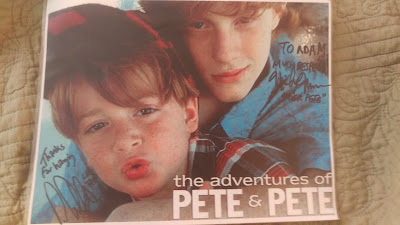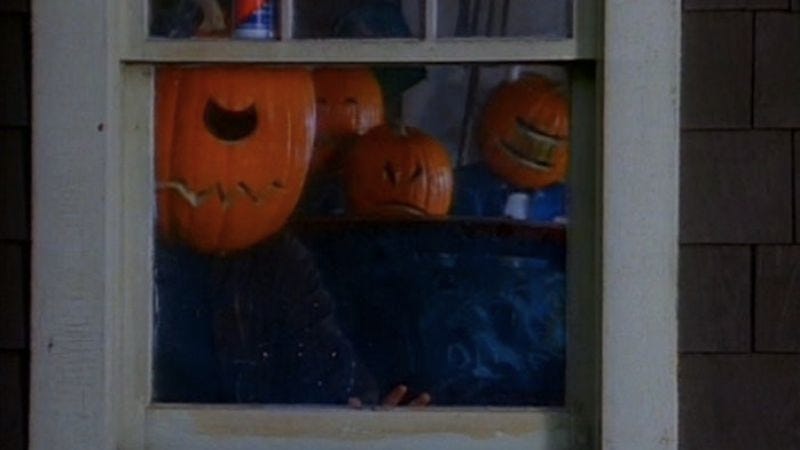Last year, I looked at a then- brand- new Christmas special (The 'Loud House' Christmas special), but this year, as the conclusion of my two- part Christmas edition, I'll look at an older one.
I really enjoy the old Rankin- Bass Christmas specials. For those not familiar with that title, they're the guys who did such classic stop- motion Christmas specials as 'Rudolph the Red- Nosed Reindeer,' 'The Year Without a Santa Claus,' 'The Little Drummer Boy' and its sequel, and many others. They're always so much fun, so heartwarming, and invoke such a great sense of nostalgia. They have a really timeless feel to them, which is why I'm glad that Freeform always airs them as part of their annual '25 Days of Christmas' lineup, so that the younger generations can be introduced to them and the older generations can be reminded of how great they were.
While my absolute favorite of these specials is 'The Year Without a Santa Claus' (Snow Miser and Heat Miser rule!), for the sake of this edition, I will be looking at my second favorite: Their 1970 special, 'Santa Claus is Comin' to Town.' So, pull up a seat, pour yourself some eggnog, and let's take a look:

In this special, an admittedly rather creepy- looking mailman voiced by Fred Astaire is telling Santa's backstory as a way of answering some of the questions kids have about Santa, such as why he goes down chimneys, why he leaves presents in stockings, why he has a beard, and so on.
It all begins when an abandoned baby wearing a little gold tag that says "Claus" winds up at the doorstep of the Kringles, a family of friendly toymaking elves. They take the baby in, name him Kris, and raise him as their own, teaching him the toymaking trade.
Some years pass, and as a young man, Kris (Voiced by the late, great Mickey Rooney, who would reprise this role as Santa in many later Rankin- Bass productions) decides to try and deliver the toys they have made to a city called Sombertown so that the children there can all play with them and feel happy.
Sombertown's kids are pretty miserable, mainly because the town's heartless mayor, Burgermeister Meisterburger (Gotta love that name), has completely outlawed all toys in the town and orders kids to instead fill their days by doing extra chores. Kris sets out to change all that by bringing both toys and happiness back into the children's lives while dodging the Burgermeister's attempts to stop or capture him.
Along the way, Kris makes quite a few new allies in his struggle to bring joy to the children of Sombertown. First, he befriends a lost penguin named Topper who helps him out of a couple jams and ends up being the reason why Santa goes down chimneys. Then, he runs into the seemingly vicious and cruel Winter Warlock, but through a kind gift and an uplifting song, Kris quickly convinces Winter to change his ways, and with his power he becomes quite an asset to Kris. Next, Sombertown's schoolteacher Jessica, while initially mistrustful of Kris, soon not only comes to see the good he does and aid him in his efforts, but eventually falls in love with him and marries him, becoming Mrs. Claus.
Eventually, of course, Kris overcomes the odds, and becomes the figure we all know and love today.
Ever since I first saw 'Santa Claus is Comin' to Town' as a kid, I have truly loved it!
The story is so much fun to watch, and offers good explanations as to the origins of the ways Santa works. The characters are all really likable (Other than the Burgermeister, of course, and even he's rather funny to watch with what a blustering windbag he is and some of the toy- related mishaps he suffers), especially Kris. Through a combination of how he's written and Mickey Rooney's performance as his voice, he shows such warmth, gentleness, compassion, cheer, and goodwill, just like how you'd imagine Santa as a young man being. Even the Internet series host the Nostalgia Critic, who doesn't normally like the Rankin- Bass specials, liked the way Kris was portrayed so much he included him on his Top 11 list of favorite Santa performances. Another character who really sticks out for me is Winter Warlock. They make him extremely developed with all the changes he goes through over the course of the special. Keenan Wynn does a wonderful job with his voice, making it gruff and scary when he's evil at the start, then noticeably soften after Kris helps melt his heart. You can feel sad along with him when he tearfully reveals later on that he's lost nearly all of his magic, then rejoice along with him when he finds out he still has some of it left and can still put it to good use.
The songs in the special are mostly very good (Though one of them, "A Kiss for a Toy," gives off kind of an awkward feel listening to it today), with my favorite of them definitely being "Put One Foot in Front of the Other," the song that Kris uses to help Winter Warlock learn he can turn his life around and become good. That song is so unbelievably catchy and sends such a great message. More than a few times, I find myself randomly humming it!
I can think of quite a few good Scriptural messages that can be found in 'Santa Claus is Comin' to Town.' One that sticks out right away is on persevering in righteous work, even when it gets tough. Even when Kris was hounded by the Burgermeister and viewed as a criminal for bringing toys to the children of Sombertown, he refused to let that stop him from doing what he knew was right; He kept on pushing, finding new and better ways to go about doing it. There are several Bible verses about the importance of this kind of endurance in righteous and holy acts. In James 1:2-3, it points out "Consider it pure joy, my brothers and sisters, whenever you face trials of many kinds, because you know that the testing of your faith produces endurance." Furthermore, Romans 2:7 says that "To those who by persistence in doing good seek glory, honor, and immortality, He will give eternal life." In doing good and actively pursuing our faith, we will encounter trials and opposition. It may be from despotic rulers like the Burgermeister in the special or from real- life tyrants throughout history who've tried stamping out the Gospel (From Nero to Stalin to modern Sharia and Communist rulers), or it may be from more mundane things like our schedules, technical problems, or other setbacks. What's important is to keep going, keeping in mind the good you are doing for God's Kingdom, and that you are doing it as an act of service to Him.
A second message that can be found is on the nature of grace and redemption. This is shown well by Winter Warlock's redemption and the message in the song "Put One Foot in Front of the Other." Kris starts it by telling Winter that "Changing from bad to good is as easy as taking your first step." The song points out that all it takes to change your ways is having the courage to start, then it gets easier as it goes along. This very much ties into the Biblical view of salvation found through God's grace, right down to the fact that Winter at one point in the song refers to it as "The chance to be reborn." Romans 10:9-10 has the apostle Paul pointing out that "If you declare with your mouth, 'Jesus is Lord,' and believe in your heart that God raised Him from the dead, you will be saved. For it is with your heart that you believe and are justified, and it is with your mouth that you profess and are saved." Through God's amazing grace and love, being saved and reborn really is as simple as that, and the Holy Spirit will help guide you from there.
A final, amazing theological message that can be taken from 'Santa Claus is Comin' to Town' is in its very end; As the mailman is finishing his story, he brings up that there are still people to this day who are opposed to Santa and Christmas, including taking the view that we shouldn't even talk about Santa in a world with so many problems and so much unhappiness in it. The mailman replies to this with an amazing monologue:
"Lots of unhappiness? Maybe so. But doesn't Santa take a little bit of that unhappiness away? Doesn't a smile on Christmas morning scratch out a tear cried on a Saturday? Not much, maybe. But, what would happen if we all tried to be like Santa, and learned to give as only he can give, of ourselves, our love, our talents, and our hearts? Maybe if we could all learn Santa's beautiful lesson, maybe there would finally be peace on Earth, and goodwill toward man."
That monologue was such a theological slam- dunk in my eyes. Basically replace "Santa" with "Jesus," and it all applies perfectly. Kris in this special gives a great picture of how Christians should live out their faith; He sets out to meet people's needs when he finds them (Bringing toys to Sombertown's kids), helps people gain a positive new outlook on things (Helping to open Jessica's eyes to the world around her), shows kindness to those who've fallen and gives them hope for redemption (As he did for Winter Warlock and tried to do for the Burgermeister), and shows reverence to the Lord in what he does (i.e. Why, when he got to the point that he could only do toy deliveries once a year, he decided that Christmas Eve would be the best time to do it). This goes along with 1 John 2:6's point that "The one who says he abides in Him ought himself to walk in the same manner as He walked." Also, it goes along with Ephesians 5:1-2's instruction for us to "Therefore be imitators of God, as beloved children; And walk in love, just as Christ also loved you and gave Himself up for us, an offering and sacrifice to God as a fragrant aroma."
So, there we have 'Santa Claus is Comin' to Town'; A timeless Christmas classic which helps to teach even more timeless Scriptural lessons on endurance, God's grace and salvation, and putting Christ- likeness into action.
That's it for this edition of the Nightcrawler Experience. I should hopefully have my 'Top 11 Movie Characters of 2017' entry up before too long. Until then, merry Christmas, and may God bless you all!




